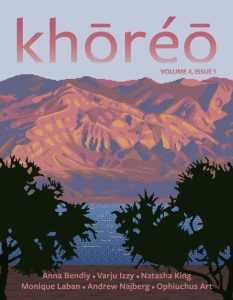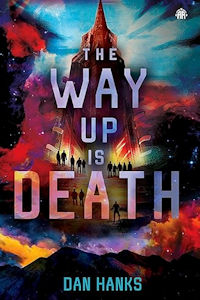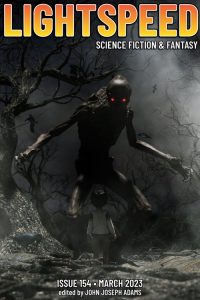khōréō: Short Fiction Reviews by A.C. Wise
Anna Bendiy’s ‘‘The Goddess of Loneliness and Misfortune’’ in khōréō 4.1 effectively explores healing, going back to the place you were born, and the cost of war. Bohdana returns to her war-ravaged home and calls on a goddess for help, only to discover the goddess has a bit of an attitude and intends to put Bohdana to work before she’ll get involved. ‘‘Child’s Tongue’’ by Monique Laban deals with similar themes of returning home and feeling caught between worlds, while also looking at cultural appropriation, and who gets to define ‘‘authenticity.’’ Babygirl works in the inn where the General’s Daughter, Victoria, is staying after returning home to mark her father’s death. There’s a huge uproar after Victoria makes a speech in Child’s Tongue; in the eyes of her father’s people, it makes her an Outsider who doesn’t even know her own language, and a disappointment to the great General’s memory. There are several heartbreaking moments as the story looks at who gets to define a culture and who counts as ‘‘enough’’ to belong, questions that are made even more complicated and personal as Babygirl and Victoria uncover evidence that the General was privately a very different than his public persona.
‘‘Intersected Sky’’ by Andrew Najberg is a quiet and brutal reflection on collateral damage and the aftermath of war, driving home the point that conflict is not self-contained, and its impact goes on long after the fighting stops. Even in a bleak and desperate situation, though, the story does a nice job of showing the main character’s attempt to hold onto hope. ‘‘Piroksa and the Wolf’’ by Varju Izzy, like Laban’s story, looks at a character caught between cultures and languages, and like Najberg’s story, looks at the aftermath of war. Piroska is being raised by her grandmother, trying to adapt to her new school, and the language of her classmates versus her grandmother’s language. Meanwhile, unexploded bombs are being dug up by workers in the lot next door. Absence weighs heavy in the story, and the author does a nice job of suggesting just enough to let readers fill in what is left unsaid. ‘‘Take Up Thy Mother’s Song’’ by Natasha King is a story with some lovely writing and evocative imagery, as neighbors band together to fight back against oppression in a world where magic and power are hoarded by a few and everyone else is left to starve and suffer.
This review and more like it in the September 2024 issue of Locus.
 While you are here, please take a moment to support Locus with a one-time or recurring donation. We rely on reader donations to keep the magazine and site going, and would like to keep the site paywall free, but WE NEED YOUR FINANCIAL SUPPORT to continue quality coverage of the science fiction and fantasy field.
While you are here, please take a moment to support Locus with a one-time or recurring donation. We rely on reader donations to keep the magazine and site going, and would like to keep the site paywall free, but WE NEED YOUR FINANCIAL SUPPORT to continue quality coverage of the science fiction and fantasy field.
©Locus Magazine. Copyrighted material may not be republished without permission of LSFF.








